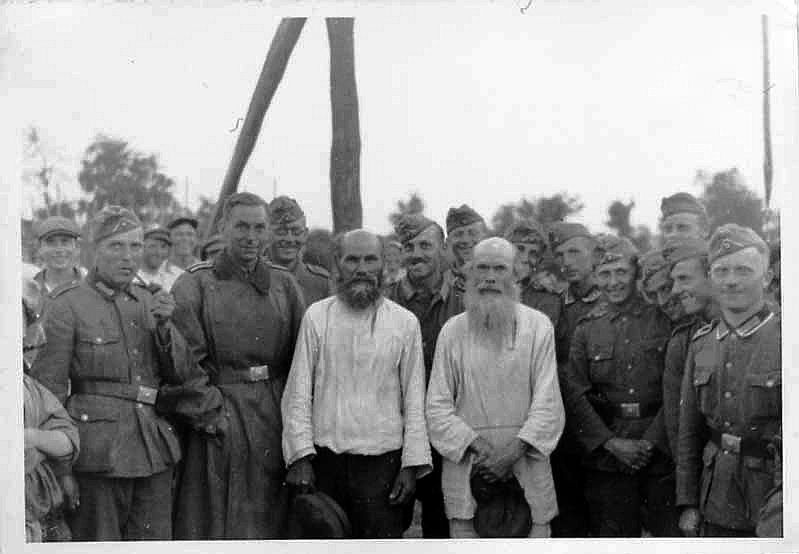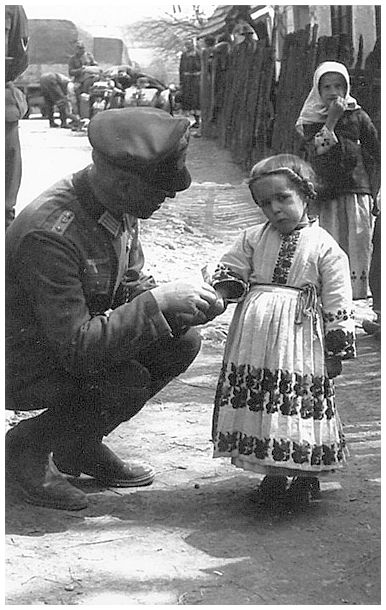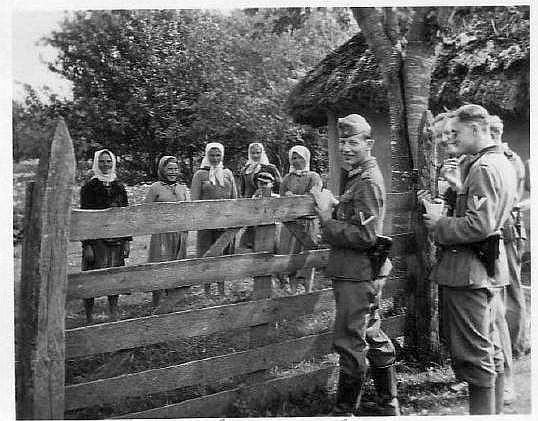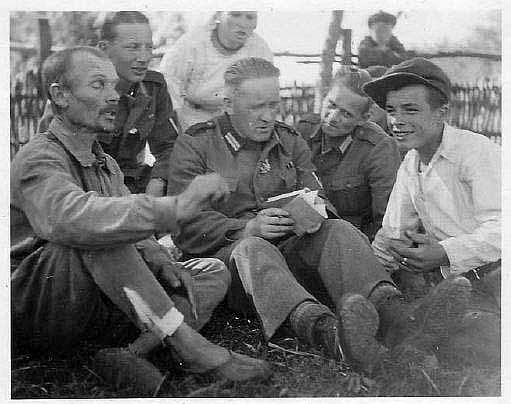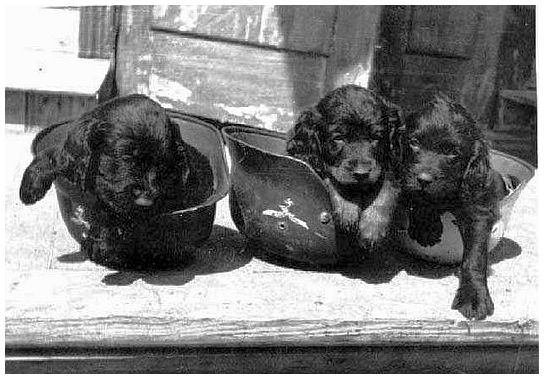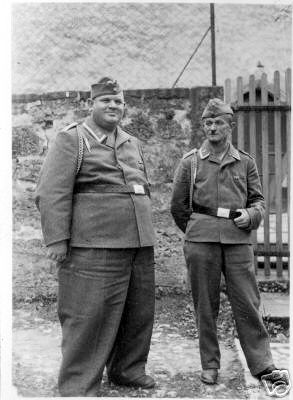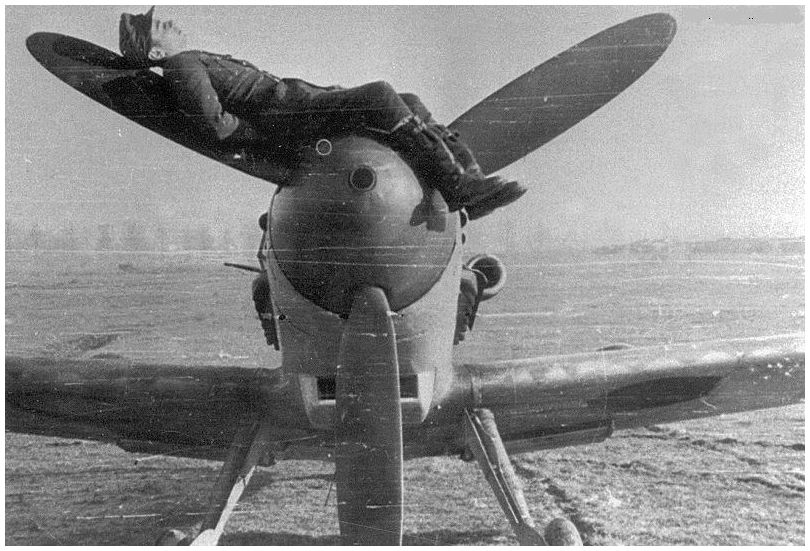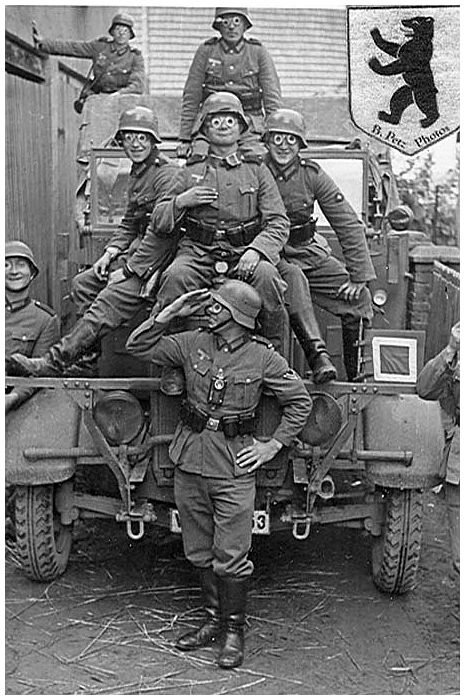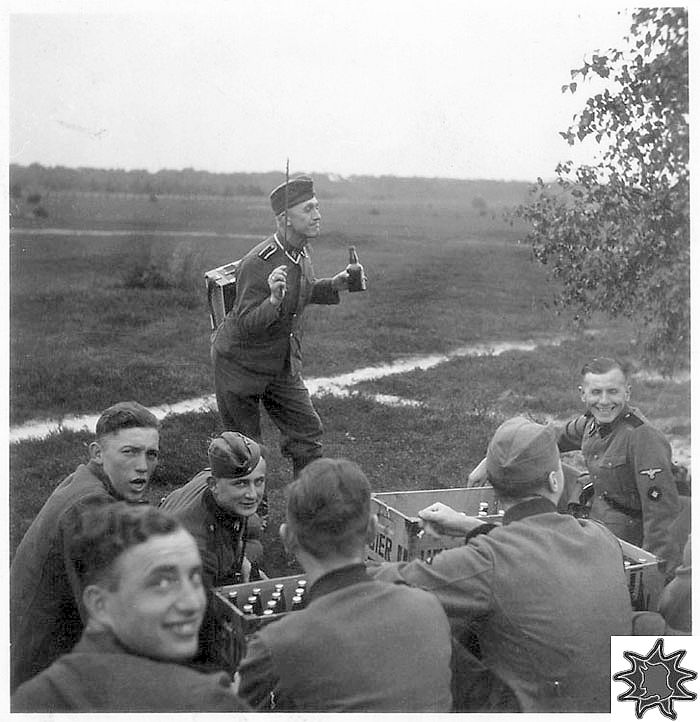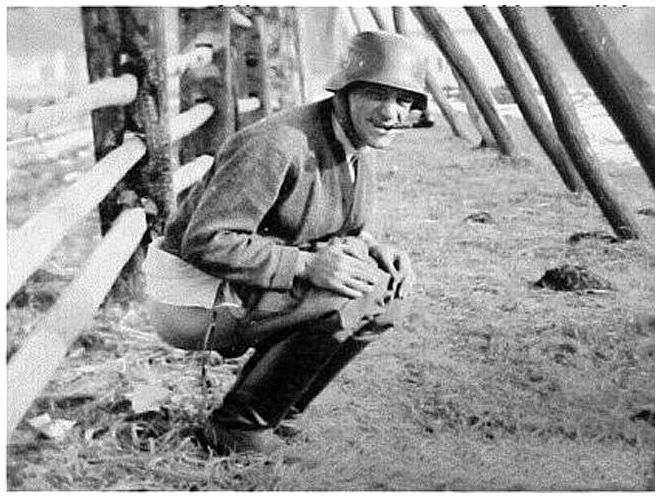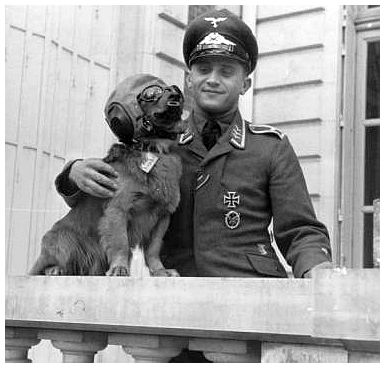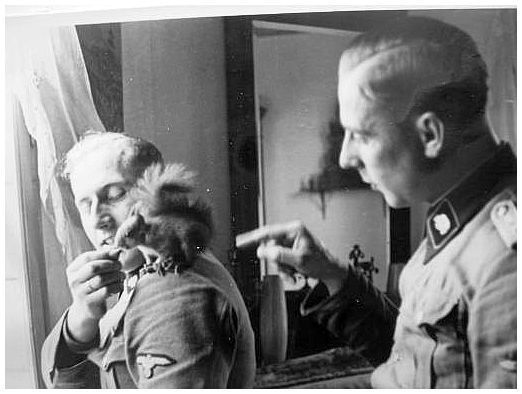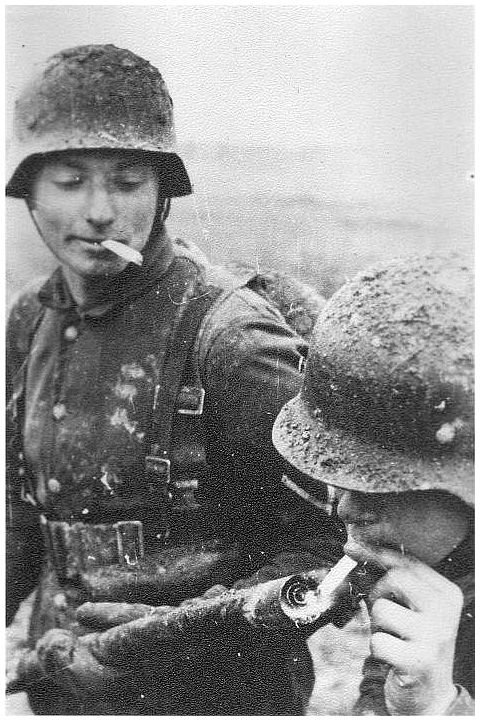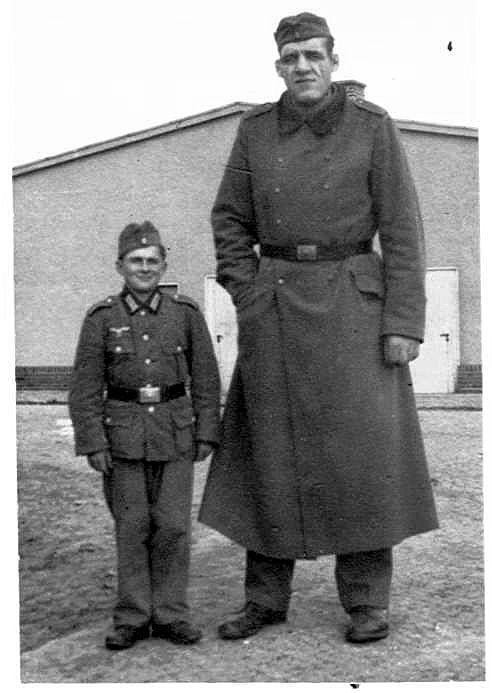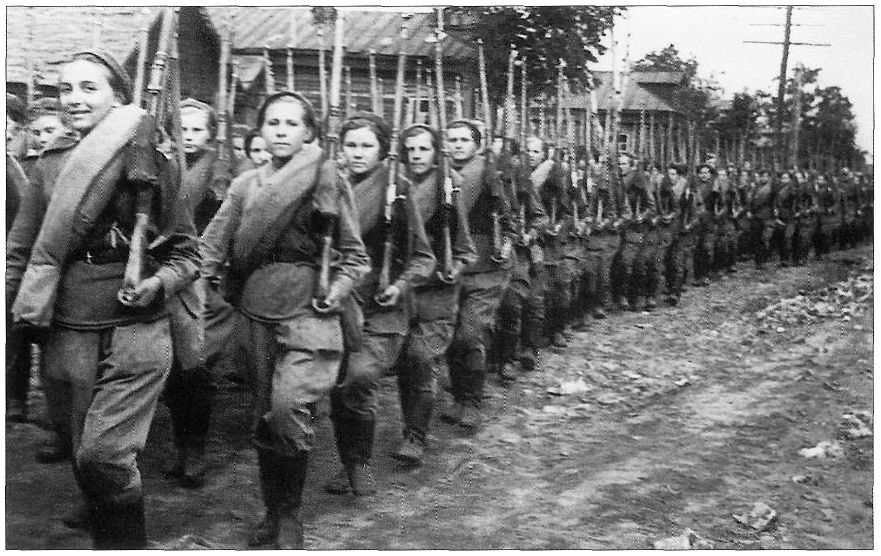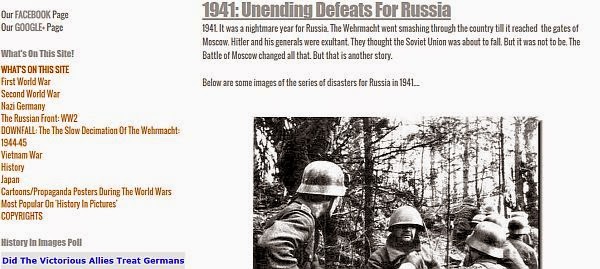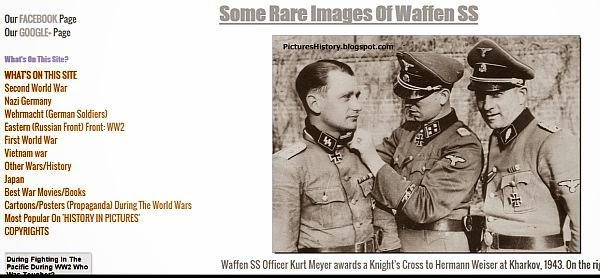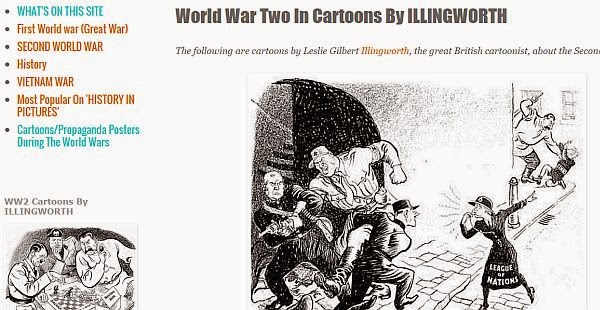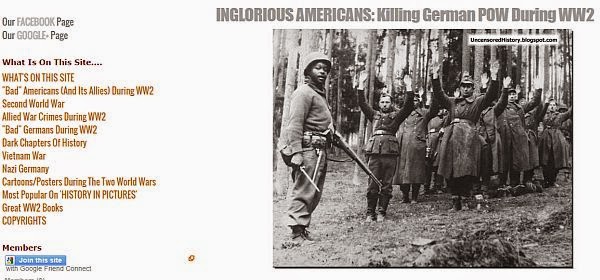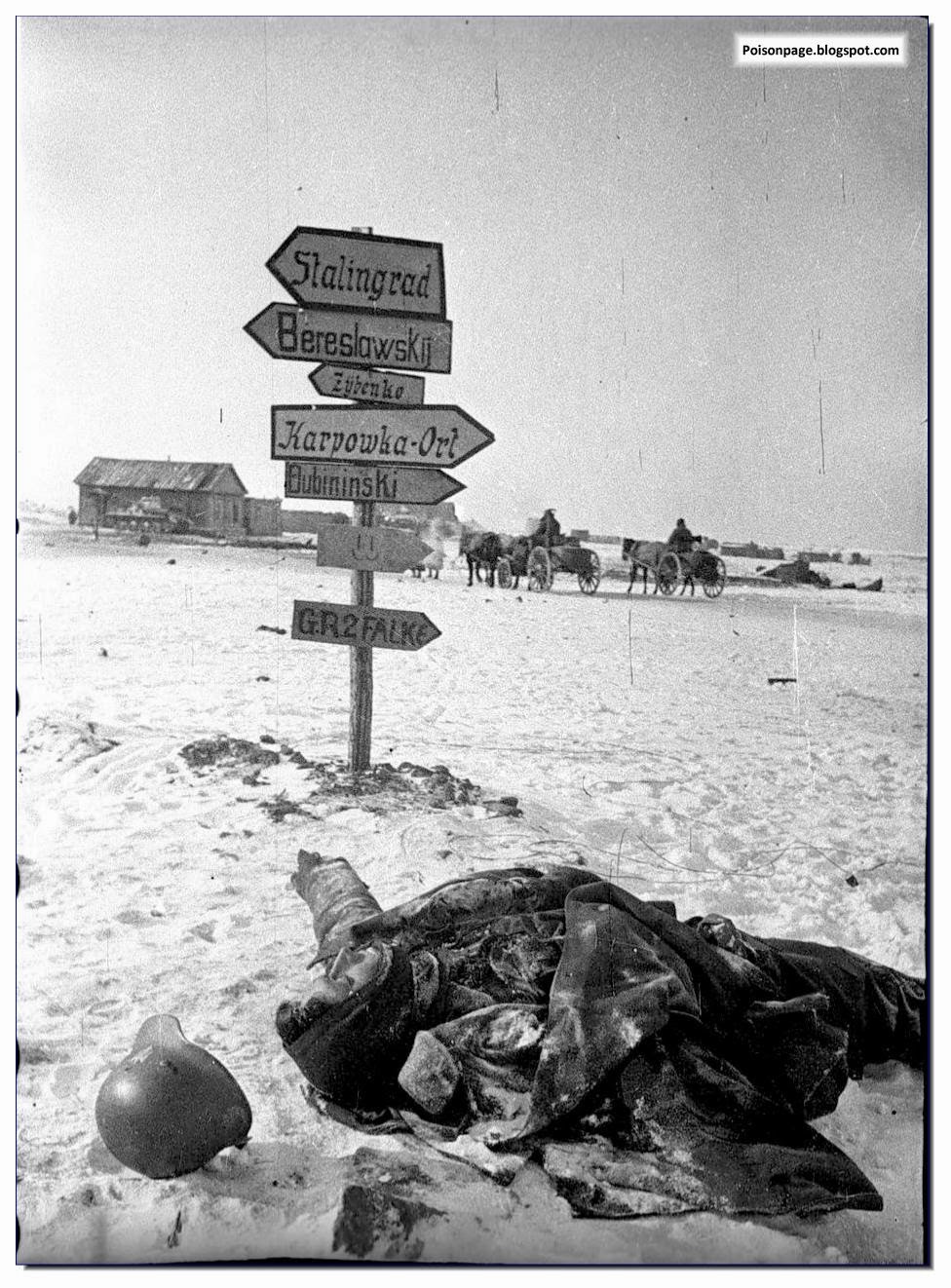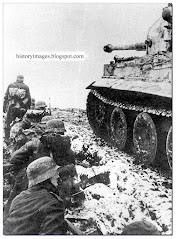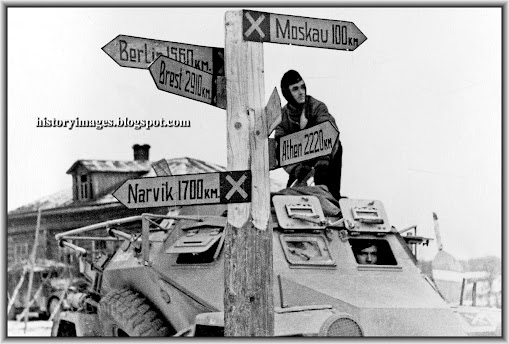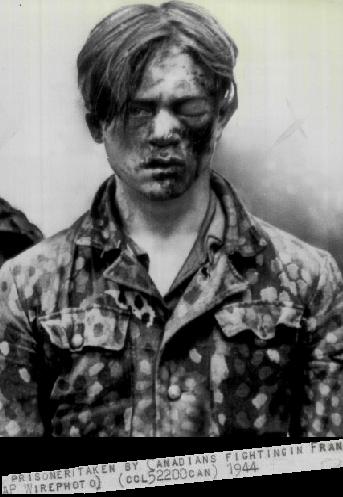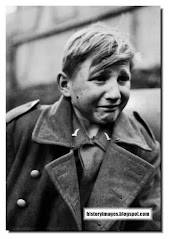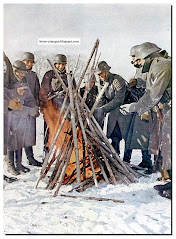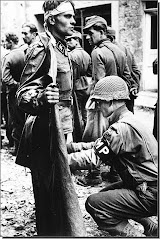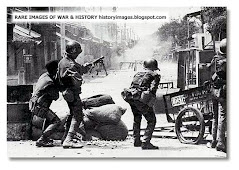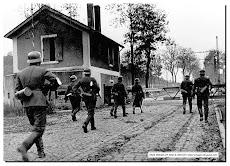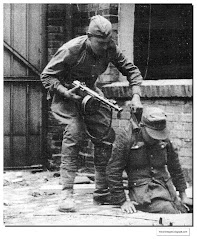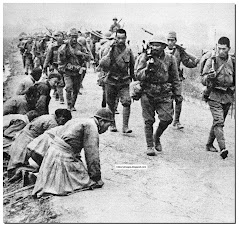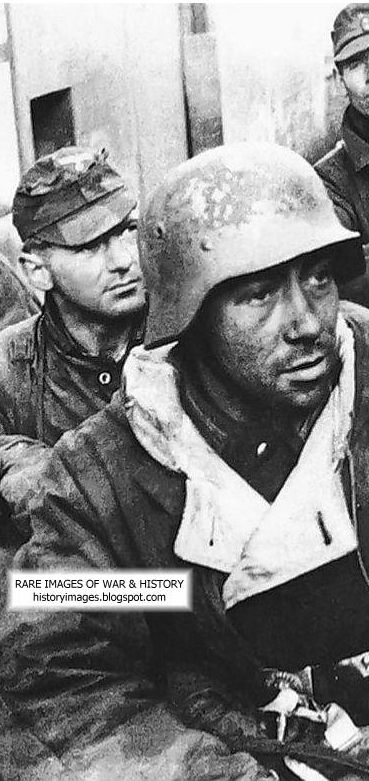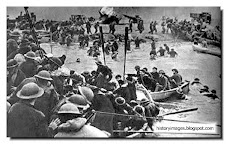Here are some propaganda posters from the Third Reich. I have only included those which show the real essence. Other posters are in another article.
 The young, virile Anglo-Saxon Germans.
The young, virile Anglo-Saxon Germans.
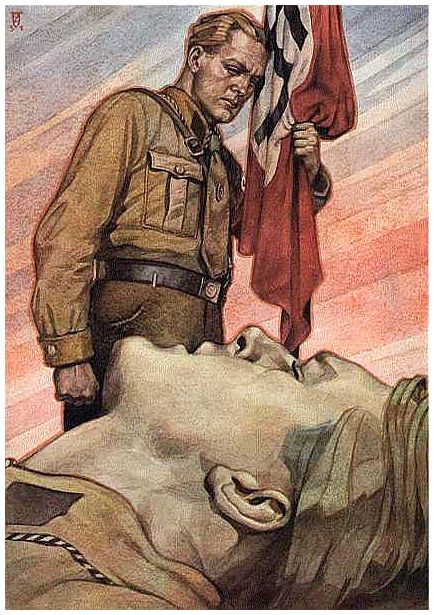 The struggle must go on as one comrade falls.
The struggle must go on as one comrade falls.
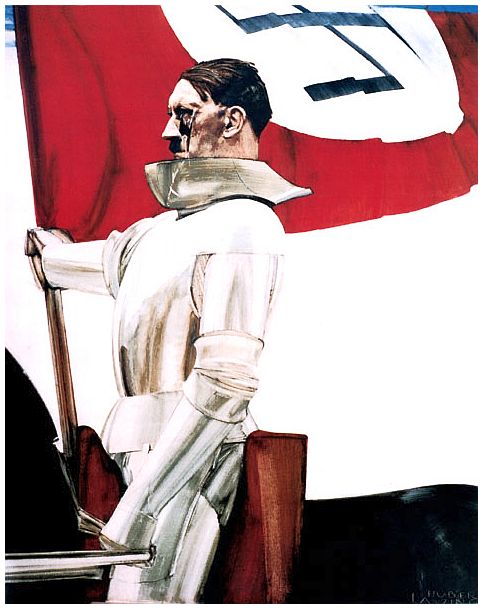 Hitler as a knight.
Hitler as a knight.
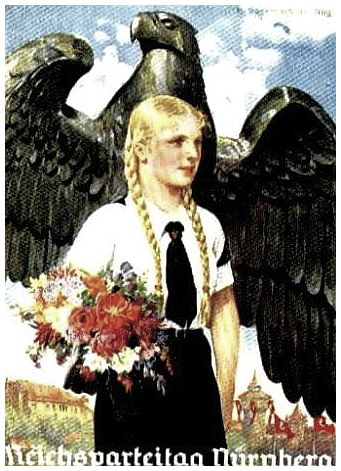 The virginal blonde German girl.
The virginal blonde German girl.
 The factory workers work hand-in-hand with the soldiers.
The factory workers work hand-in-hand with the soldiers.
 The young, virile Anglo-Saxon Germans.
The young, virile Anglo-Saxon Germans.The story of the Nazi rise to power in the Germany of the 1930s is often seen as a classic example of how to achieve political ends through propaganda. The Nazis themselves were certainly convinced of its effectiveness, and Adolf Hitler devoted two chapters in his book Mein Kampf ('My Struggle', 1925), to an analysis of its use. He saw propaganda as a vehicle of political salesmanship in a mass market, and argued that it was a way of conveying a message to the bulk of the German people, not to intellectuals.
FROM BBC, By Professor David Welch
 The struggle must go on as one comrade falls.
The struggle must go on as one comrade falls.QUOTES
"All propaganda has to be popular and has to adapt its spiritual level to the perception of the least intelligent of those towards whom it intends to direct itself."
-Adolf Hitler, Mein Kampf ("My Struggle"), Vol. I
 Hitler as a knight.
Hitler as a knight.German wartime propaganda utilized a variety of forms in its delivery. Much of the propaganda was implemented through the recently invented radio, as well as through speeches from the main Nazi leaders. Posters and other visual material were also widely circulated and vital to the persuasion. Much other visual and printed material, such as books and leaflets, was only circulated to specific groups, such as Nazi party members or soldiers. However, almost all the propaganda was spread though a variety of media.
 The virginal blonde German girl.
The virginal blonde German girl.As Minister of Enlightenment, Goebbels had two main tasks:
- to ensure nobody in Germany could read or see anything that was hostile or damaging to the Nazi Party.
- to ensure that the views of the Nazis were put across in the most persuasive manner possible.
To ensure success, Goebbels had to work with the SS and Gestapo and Albert Speer. The former hunted out those who might produce articles defamatory to the Nazis and Hitler while Speer helped Goebbels with public displays of propaganda.
To ensure that everybody thought in the correct manner, Goebbels set up the Reich Chamber of Commerce in 1933. This organisation dealt with literature, art, music, radio, film, newspapers etc. To produce anything that was in these groups, you had to be a member of the Reich Chamber. The Nazi Party decided if you had the right credentials to be a member. Any person who was not admitted was not allowed to have any work published or performed. Disobedience brought with it severe punishments. As a result of this policy, Nazi Germany introduced a system of censorship. You could only read, see and hear what the Nazis wanted you to read, see and hear. In this way, if you believed what you were told, the Nazi leaders logically assumed that opposition to their rule would be very small and practiced only by those on the very extreme who would be easy to catch.
historylearningsite
"Propaganda is not an end in itself, but a means to an end. If the means achieves the end then the means is good.........the new Ministry has no other aim than to unite the nation behind the ideal of the national revolution."
-- Goebbels
"The essence of propaganda consists in winning people over to an idea so sincerely, so vitally, that in the end they succumb to it utterly and can never escape from it."
-- Goebbels







